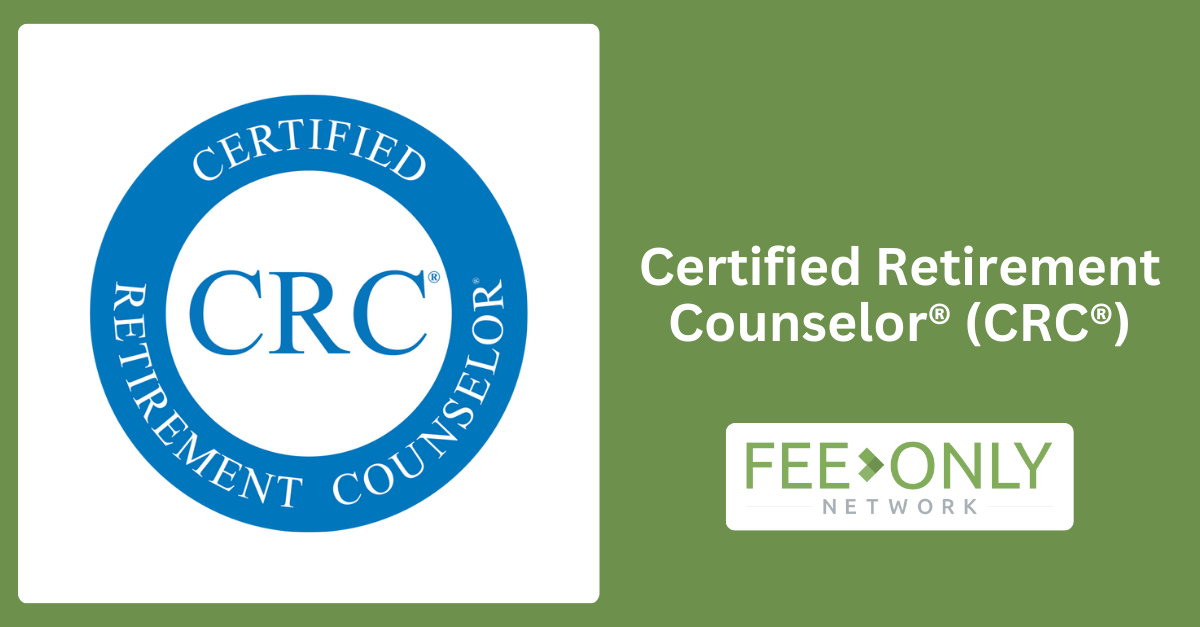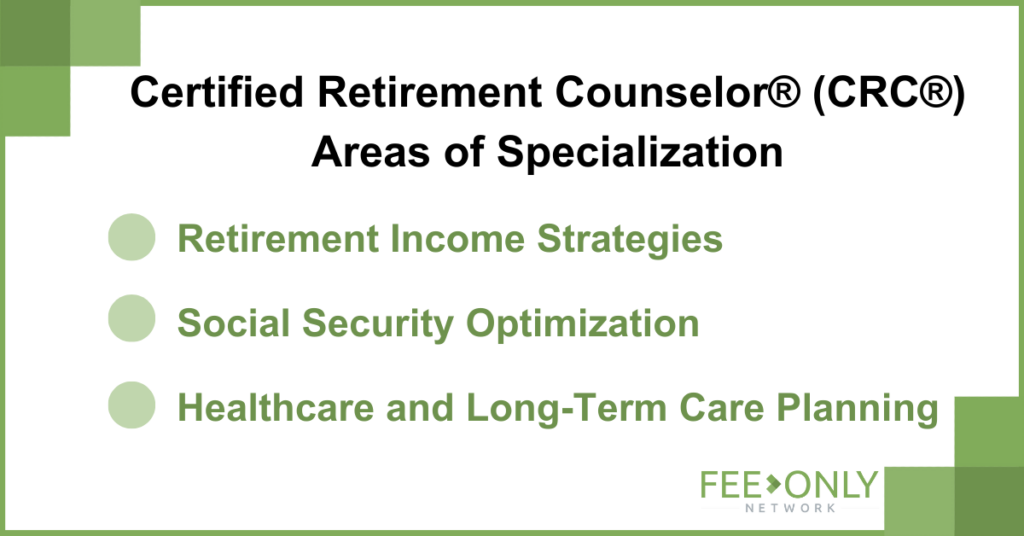
Updated: March 27, 2025

A Certified Retirement Counselor® (CRC®) is a financial professional specializing in retirement planning, equipped to guide individuals through the complexities of preparing for and managing retirement. Earning the CRC® designation signifies a mastery of both accumulation and distribution retirement planning concepts, adherence to a strict code of ethics, and a commitment to ongoing education. This certification is independently accredited by the National Commission for Certifying Agencies (NCCA), underscoring its credibility in the financial industry.
A CRC® professional offers comprehensive guidance on various aspects of retirement planning, including:
By focusing exclusively on retirement-related financial planning, CRC® professionals provide specialized expertise that general financial advisors may not offer.
To obtain the CRC® certification, candidates must meet specific educational and professional experience requirements:

Engaging a Certified Retirement Counselor® offers several advantages:
By choosing a CRC®, individuals can feel confident that they are receiving guidance from a dedicated retirement planning specialist.
The Certified Retirement Counselor® (CRC®) designation represents a high standard of expertise and ethical commitment in the field of retirement planning. For individuals seeking specialized guidance to navigate the complexities of retirement, partnering with a CRC® can assure that their financial future is in knowledgeable and trustworthy hands.
Governing Body: The CRC® designation is conferred by the International Foundation for Retirement Education (InFRE).
What distinguishes a CRC® from other financial advisors?
A CRC® focuses specifically on retirement planning, possessing specialized knowledge in areas such as retirement income strategies, Social Security, and healthcare planning, which may not be the primary focus of general financial advisors.
Is the CRC® designation recognized within the financial industry?
Yes, the CRC® is independently accredited by the National Commission for Certifying Agencies (NCCA), highlighting its credibility and recognition in the financial sector.
How often must a CRC® renew their certification?
CRC® professionals are required to complete 15 hours of continuing education annually, including at least two hours of ethics every two years, to maintain their certification.
Can a CRC® assist with investment management?
Yes, CRC® professionals can provide investment management services tailored to align with clients’ retirement goals and risk tolerance.
What ethical standards are CRC® professionals held to?
CRC® designees must adhere to a Code of Ethics that includes acting in the best interest of clients, ensuring integrity and professionalism in their practice.

Allan Slider is the Founder of FeeOnlyNetwork.com, a one-of-a-kind digital platform that elevates the visibility of fee-only financial advisors, individually and collectively. Fee-Only advisors are ONLY compensated by the client and NEVER make commission by selling financial products, or receiving kickbacks from brokerage firms. Allan is a consumer & investor advocate and a 20+ year veteran of online marketing for financial advisors.

If you're seeing this message, it's because the web browser you're using to access our site is much older and no longer supported. Due to privacy and safety concerns, we don't allow older browsers to access our site. In order to access WhyFiduciary.com, please use a newer browser, like Internet Explorer 10 or above, Google Chrome, or Mozilla Firefox.
Download a newer browser